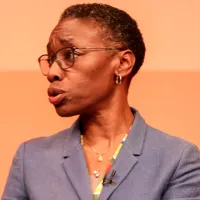Africa’s security in a global context
08 August, 2023
Surveying the security landscape in much of Africa at the start of 2023, it is difficult to escape a gloomy assessment, but these should not prevent us from also recognising reasons for hope.
Armed violence continues to destabilise too much of the continent. In the Sahel, fighting has driven millions from their homes, killed thousands and left swathes of territory under the control of a variety of armed groups. A renewed insurgency in the eastern Democratic Republic of Congo has created new perils and miseries for residents while drawing the DRC’s neighbours into protracted disputes, even as some deploy peacekeepers to the ground. Over the course of the past three years, political transitions in the Horn of Africa’s biggest countries, Ethiopia and Sudan, veered violently off course, although there have been some positive developments of late in Ethiopia. Meanwhile, Somalia’s fight with al-Shabaab continues without an end in sight, and Mozambique struggles to contain a jihadist campaign.
The global environment has added to African states’ challenges. Russia’s all-out invasion of Ukraine in February 2022 came just as many African countries were charting a path toward recovery following the economic slowdowns triggered by the COVID-19 pandemic. The invasion – as well as the sanctions and other counter-measures the West has imposed to punish Russian aggression – have sent commodity prices soaring (notably those of food, fuel and farm inputs). The resulting economic pain has left millions struggling to cope and could stir unrest. Climatic shocks, meanwhile, are now one of the leading causes of displacement and economic dislocation on the continent and may create new conflict risks.
2022 IIAG findings
Against this backdrop, it is hardly surprising that the latest Ibrahim Index of African Governance Report makes for sobering reading, particularly when it comes to metrics that look at safety and security. With conflict on the rise across the continent, the Report reflects that 70% of Africa’s population lives in a country where the security and rule of law environment has worsened in the decade since 2012. This figure partly reflects a lamentable decline in accountability and transparency, but the biggest drop off over the past ten years came in the IIAG's Security & Safety sub-category.
Yet even in this difficult context, there are some positive developments that bear attention. In November, the main protagonists in Ethiopia’s bloody two-year conflict signed a peace deal that has halted the worst fighting in the northern Tigray region and brought relief to millions in Tigray and other war-affected parts of northern Ethiopia. Somalia navigated a delicate transition in mid-2022 and formed a new administration that seeks to smooth relations between the central government and subnational federal states – and with its neighbours. Kenya’s high-stakes 2022 election concluded smoothly.
Cause for hope
More widely, the continent’s youth continue to push, with some success, for more accountable governance. In Nigeria, the voters' roll reflected a surging interest in democratic participation among the youth ahead of elections in February 2023. Of the 9.5 million newly registered voters, 76% are between 18 and 34. This enthusiasm is partly driven by the 2020 #EndSARS protest movement, which galvanised a nationwide campaign that forced authorities to acknowledge public anger over police brutality against civilians.
Acknowledging these bright spots does not mean that reversing the alarming decline in security conditions on the continent will be easy, but some of the findings in the latest Index report offer hints as to how the worst affected countries and their external partners might work to mitigate negative trends.
Correlation between Overall Governance and Security scores
African leaders should be especially attentive to the strong correlation between countries that score well on Overall Governance with countries that score well on security. In other words, countries that have performed well on rule of law, governance, and anti-corruption metrics also tend to be among the most peaceful. Indeed, eight of the ten highest scorers in Security & Rule of Law in 2021 also feature among the ten highest scoring in Overall Governance.
This correlation may be intuitive but it is also highly pertinent as Africa struggles to build a more peaceful future. Far too often over the past decade, African policymakers and their partners have favoured a military-centric approach to resolving deadly conflict that ignores the role that good governance and strong institutions play in securing a stable peace. Challenging though it will be, states must devise ways to offer more responsive governance well beyond the capitals in which elites operate. Although brutal and violent, many armed groups have exploited the vacuum left by state institutions in rural areas by stepping in to offer a degree of rough justice and stability in the areas they rule. Governments, with the support of their external partners, should engage in the hard work of rolling out strategies to build a greater presence of the state in war-affected areas, possibly following local agreements with the armed groups that currently hold sway.
There is little doubt that the security landscape on the continent is as worrying as it has been in years, but the Index report offers useful insight about how to build on positive trends, like the pressure from Africa’s youth for more accountable rule. The drivers of conflict and instability are often complex and multifaceted. The findings of the Index Report indicate that – beyond being a good in its own right – offering better governance for the greatest number of the continent’s residents can certainly help to improve the odds of a more peaceful Africa.



